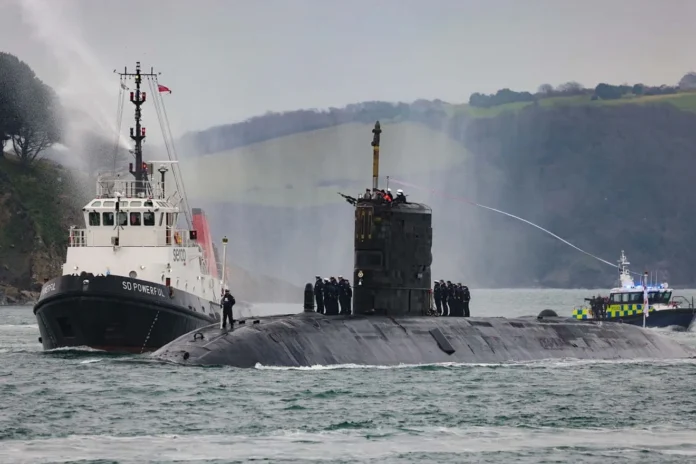The last of the Royal Navy’s glorious Trafalgar-class attack submarines has arrived home in Plymouth for the final time before decommissioning. The seventh and last boat of the class, HMS Triumph, sailed into her homeport at Devonport Naval Base after her final voyage from Scotland, where submariners bade farewell to the long-serving stalwart at Clyde Naval Base after a career of nearly 34 years.


